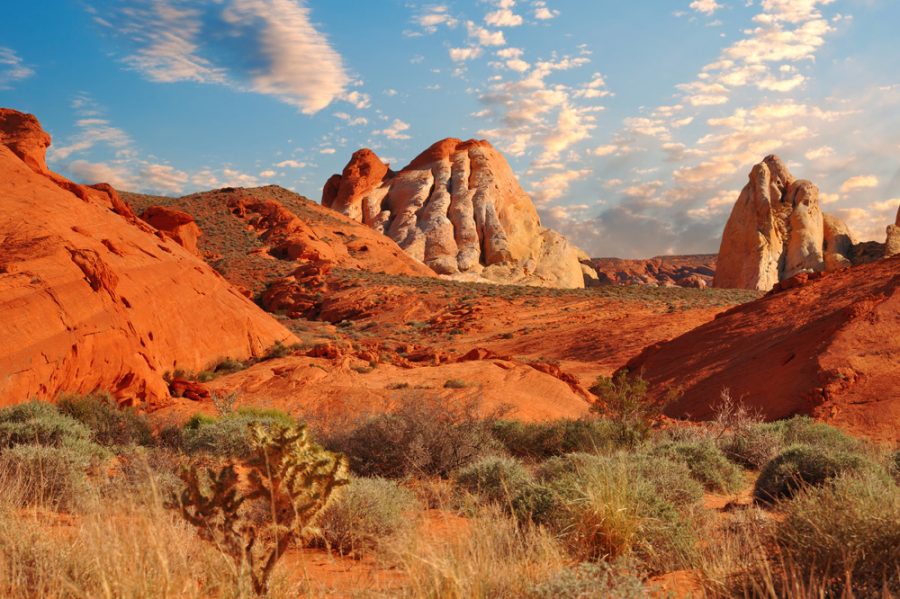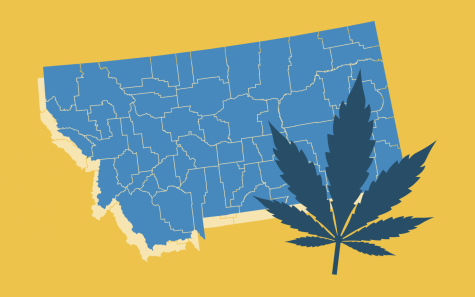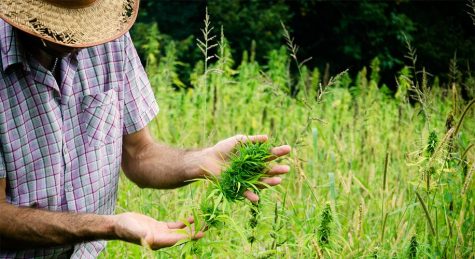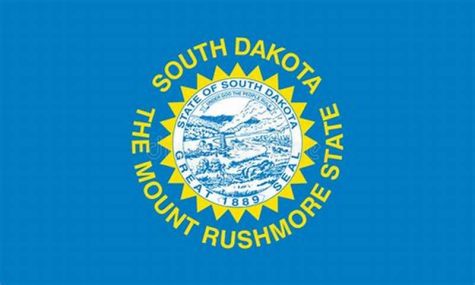Nevada’s tribal cannabis businesses are being proactive amid COVID-19 pandemic
As a global pandemic filters throughout the United States, some of the hardest-hit communities and territories are tribal lands. In Nevada where cannabis stores have been serving customers with delivery since March 20 tribal cannabis business owners have taken it upon themselves to soften the economic blow caused by COVID-19.
Recent reports show that Native Americans are being left out of the U.S. coronavirus data. Billions of dollars has been reserved for tribes, many of which have encountered obstacles in actually getting their hands on funding from the ”Coronavirus Aid, Relief, and. Economic Security Act” (CARES) Act Paycheck Protection Program.
With tribal cannabis business owners in Nevada forced to follow social distancing measures, restrictions have been imposed on outside contact and across-border visits. Fortunately, amid the economic decline that has erupted as a result of the virus outbreak, the Inter-Tribal Marijuana Commission (ITMC) is working alongside cannapreneurs in tribal territories to help them stay afloat.
ITMC is providing regulatory oversight for tribal cannabis businesses in Nevada
Responsible for providing oversight for the Tribal Marijuana Enforcement Division, the ITMC plays an important role in regulatory affairs for Nevadas tribal cannabis industry. The Division comprises two separate divisions: an administrative division responsible for reviewing and distributing regulations for Nevada’s cannabis industry, as well as an enforcement Division responsible for maintaining business compliance in accordance with the rules of each tribal community.
ITMC has representation from a number of tribes, of which has its own specific law and order code. They are as follows:
- Ely Shoshone
- Lovelock Paiute
- Walker River Paiute
- Yerington Paiute
During a recent interview with the Cannabis Business Times, enforcement director for the ITMC, Laurie Thom, discussed how her Commission is assisting tribal communities in being a part of the legal cannabis industry.
We are helping tribes enter this industry with compliance, safety and good foresight, trying to always look ahead and be ready for that next change; because the cannabis industry changes so fast, and it is hard for tribes to stay abreast of whats going on on their own, Thom says. Its whatever their tribal council decides is necessary to protect their land and provide for the health and safety of their [tribe].
In spite of the coronavirus scare that has left many businesses hanging by a thread, the ITMC says that it’s business as usual for both division’s operations. According to Thom, tribal cannabis facilities have found ways around the pandemic and are managing to keep staff and customers sheltered from the economic struggles associated with coronavirus.
The enforcement agents have been proactive in their response to social distancing and the measures that the dispensaries are taking to help flatten the curve here in Nevada, explains Thom, who also touched upon the fact that there’s been a noticeable decline in dispensary sales. I think there has been a decrease, but I cant attribute it to one thing, except maybe its just inconvenient at this point for individuals, or it could be that they dont have a job to go to and so they dont have the funds to be able to purchase products or their medicine, she adds.
Since patients have been restricted to the boundaries of their own home amid COVID-19, the lack of access to local dispensaries has proven difficult. In a bid to tackle the issue and ensure patients don’t need to go without during times of need, tribal retailers like Winnemuccas White Knife dispensary have started offering drive-thru services. Conversely, some dispensaries are welcoming just one person inside their store at any given time, whereas others have established specific opening times for elderly and vulnerable patients.
These measures have been necessary, says Thom, what with tribal cannabis businesses in Nevada in addition to cannabis companies and ancillary businesses across the U.S. being left out of the recently dispersed federal stimulus package funding.
Supplies are short, and the federal dollars take forever to come in because theyre always last on the list when it comes to whatever trickles down from the faucet, she adds.
Native American cannabis firm is helping Nevadas tribal cannabis businesses
Aside from the support that Nevada’s tribal cannabis businesses are receiving from the ITMC amid COVID-19, Tribal Cannabis Consulting (TCC) is also on-hand to prevent companies from drowning in the economic glut. TCC a specialized consultancy firm that has helped the Ely Shoshone, Pyramid Lake, Yerington Paiute, and various other Nevada tribes is making its best efforts to manage and distribute donations among the state’s tribal cannabis companies.
I really have a big shout-out to the Tribal Cannabis Consulting team, said Thom. Before, when I was chairman of the Yerington Paiute tribe, they were able to donate a food delivery vehicle for our elders; they can receive their elder meals delivered to their homes.
The ITMC was initially founded by the TCC as a means of providing oversight for Nevada’s tribal industry. Numerous communities have been assisted by the TCC in building and sustaining cannabis programs unique to their tribal codes. As the coronavirus pandemic proliferates, the TCC is encouraging tribal cannabis businesses to take a proactive approach by supplying then with hand sanitizer and N95 masks; there have reportedly been 12 separate tribes on the receiving end of these donated items.
Thom added that tribal communities were fast-acting following the stay-at-home orders of Nevada’s Governor Steve Sisolak on March 12, 2020. The ITMC issue an emergency regulation to help sustain food supplies amid the coronavirus pandemic. To accomplish this task, Nevada’s tribal communities are seeking out ways to cultivate vegetables in segments of their cannabis-grow facilities. Two examples include a dispensary run by the Ely Shoshone tribe, which is donating a portion of retail sales to local Boys and Girls Clubs, and Yerington Paiute dispensary, which is organizing and hosting canned food drives.
Theyve always thought about ways to help the communities, Thom says. Its a way of trying to not be a stigma of a cannabis dispensary; its that community peace and showing compassion for the patients who [need] it,” Thom concluded.








